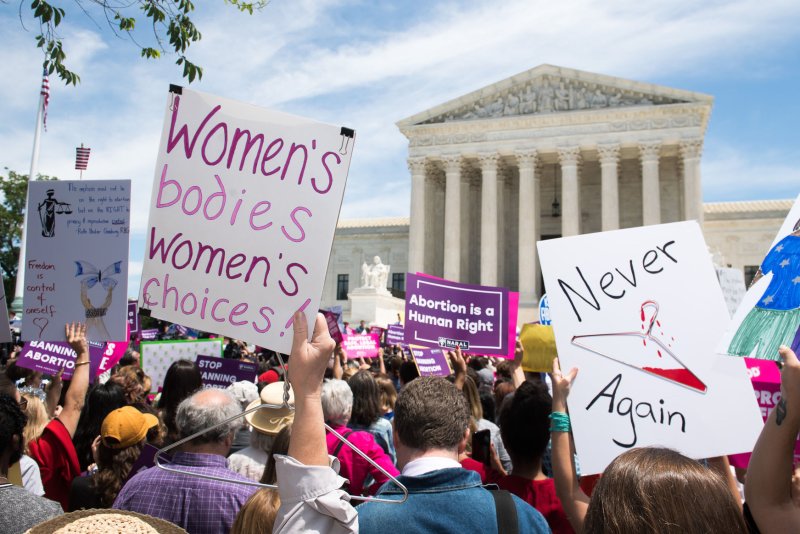
Supreme Court allows divisive Kentucky abortion law to begin
by Don JacobsonDec. 9 (UPI) -- The U.S. Supreme Court declined Monday to hear arguments about a new Kentucky rule that requires physicians show women seeking abortions ultrasound images of their unborn fetuses, allowing the controversial law to take effect.
The high court dismissed without comment the challenge to an April decision by the 6th U.S. Circuit Court of Appeals in Cincinnati that upheld the Kentucky law, known as the Ultrasound Informed Consent Act.
The law, signed in 2017 by Republican Kentucky Gov. Matt Bevin, requires doctors who perform ultrasound exams on abortion-seeking women to describe the images and play audio of the fetal heartbeat. It does not, however, force women to look at images, and they can also ask the doctor to turn off the audio.
The rule, intended to discourage expecting women from going through with the procedures, quickly came under challenge by the American Civil Liberties Union, which mounted the appeal on behalf of Kentucky's lone abortion clinic on the grounds it violated doctors' right to free speech.
The appellate court, however, ruled there was "nothing suspect" on First Amendment grounds in requiring a doctor "before performing an abortion, to make truthful, non-misleading factual disclosures, relevant to informed consent."
The ACLU condemned the Supreme Court's decision to dismiss the case.
"By refusing to review the 6th Circuit's ruling, the Supreme Court has rubber-stamped extreme political interference in the doctor-patient relationship," it said. "This law is not only unconstitutional, but as leading medical experts and ethicists explained, deeply unethical."
Although aimed at First Amendment issues rather than directly addressing the legality of abortion, the court's refusal to hear the Kentucky case is being viewed by some as a possible signal as to how the justices might rule should any of several challenges to the landmark 1973 Roe vs. Wade case reach the high court bench.